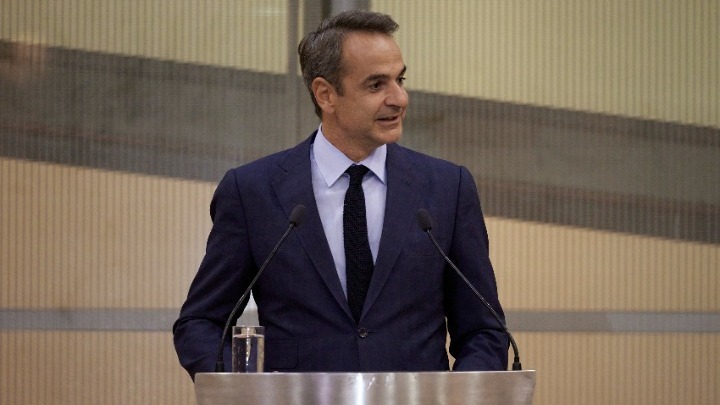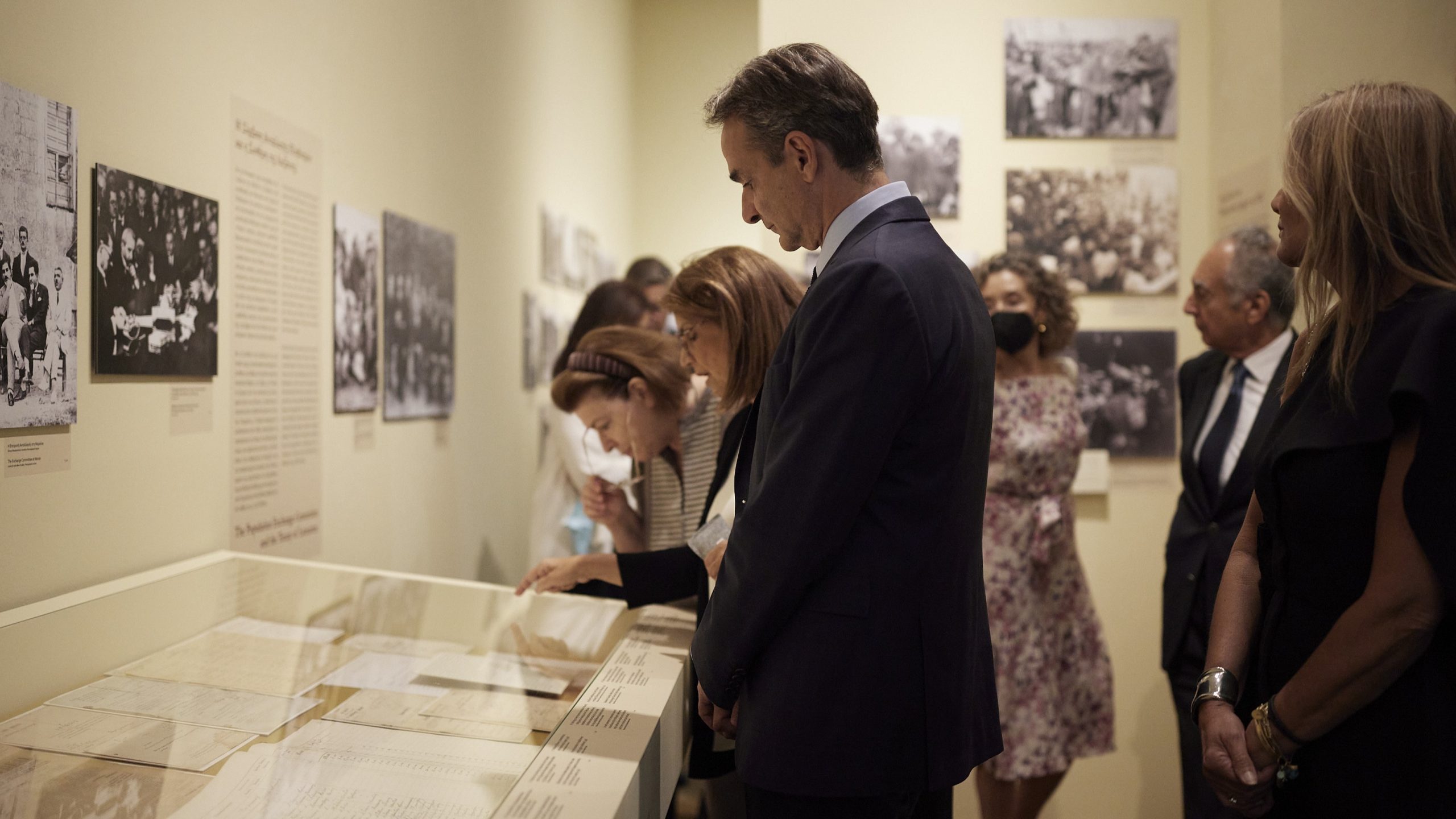Greece’s Prime Minister, Kyriakos Mitsotakis, attended the opening of the ‘Asia Minor: Shine, Destruction, Uprooting’ exhibition at the Benaki Museum in Athens on Wednesday.
The exhibition was opened on the National Remembrance Day for the Genocide of the Greek of Asia Minor.
During the opening night, Mitsotakis gave a speech and praised the contribution of Pontian refugees from Asia Minor to Greece at that time.
The Greek Prime Minister also emphasised that every great setback can be followed by a greater national success, and that today the “Great Idea” is not associated with geographical possessions but with “Greater Greece.”
“The real confrontation of a country is with its past and its future. Hellenism may have lost one of its most creative foci in September 1922. Soon after, however, the country learned to win the battle for its prosperity,” Mitsotakis said.

Next, the Prime Minister referred to the efforts of the Greek state and Eleftherios Venizelos to deal with the resettlement of millions of refugees through the Lausanne Treaty – which Turkey continues to revise to this day.
“Since then, the Treaty of Lausanne has governed our co-existence with our neighbours… despite the fact that Turkey has violated it by uprooting the Greek element of Constantinople, Imbros and Tenedos,” Mitsotakis said.
“The other side of the Aegean should realise, however, that the nearly one century of validity of this Treaty will be succeeded by many more. This is what history and geography, legitimacy and international stability require.”
READ MORE: Giannis Koutoulias on fighting to preserve history at the Museum of Asia Minor Culture.
Source: AMNA.gr.

